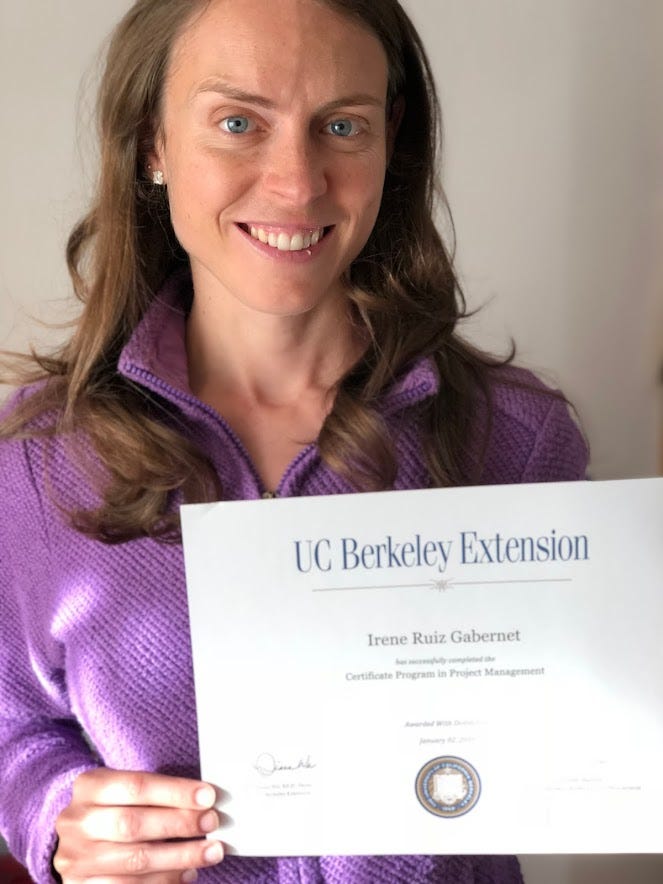The power of Project Management in driving professional growth, without being a Project Manager
In this blog I want to explain why I pursued a Certificate in Project Management and how it has positively influenced my career by enhancing my ability to plan, organize, and monitor initiatives.
What is a Project?
In accordance with the PMBOK (Project Management Body of Knowledge) Guide, or what is the same, the “bible” for Project Managers, a project is “a temporary endeavour undertaken to create a unique product, service, or result.” When the project comes to and end, we should have achieved the initial objectives that had been identified at the beginning of the project.
Through the project we can create or improve a new product, service or capability.
The Project Management Discipline
Project Management is the discipline that applies the knowledge, skills, and techniques to manage those activities to achieve specifics goals stablished by the stakeholders and sponsors within a defined scope, budget, and available resources.
Processes in Project Management are grouped as per below:
Initiating process: to define the project's purpose, identifying stakeholders, and clarifying the project's feasibility and viability.
Planning process: to outline the project's scope, objectives, deliverables, timeline, resources, and potential risks.
Executing process: to put the project into action. Tasks are assigned, resources are mobilized, and work is carried out according to the established project requirements and schedule.
Monitoring and controlling process: to continuous monitore and control to ensure that the project remains on track. Necessary adjustments are made to keep the project aligned with its objectives.
Closing process: after completing project deliverables, the closing process is initiated by conducting final assessments, and documenting lessons learned for future reference.
Managing these processes requires a deep understanding of their interactions, as well as the various areas of activity that are integral to each specific project. These areas may include scope management, time management, cost management, quality management, risk management, and stakeholder management, among others.
My motivations to study Project Management
In 2014, I embarked on a transformative path by enrolling in the online Certificate Program in Project Management at University of California, Berkeley. As a Quality Engineer with aspirations for a management role, I recognized the need to acquire the necessary tools and professionalize my project approach. Despite not being a dedicated Project Manager, I firmly believed that project management competency was relevant and essential for success in any career path.
There were a few reasons for what I decided to study a Certificate in Project Management:
Career Progression: My goal was to advance into a management role. I understood that a strong foundation in project management would be vital in handling complex initiatives and leading teams towards success.
Professionalizing Project Approach: I wanted to adopt recognized approaches and methodologies in order to optimize project resource utilization, effectively manage risks, ensure clear communication, deliver key milestones, enhance team performance, and increase stakeholder satisfaction.
The journey to complete the certification took four years, during which I had the opportunity to implement the knowledge I had acquired. I applied project management methodologies and approaches in my first role as a Quality Director and successfully managed a significant Change Management project. Since then, even though I'm not a designated Project Manager, I have continued to utilize the learned techniques in various projects, including Change Management and Continuous Improvement initiatives.
Conclusions
Projects are essential for innovation, growth, and improvement across various industries. Understanding the fundamentals of projects and the role of project management is essential for successful execution and achieving desired outcomes. By embracing the project management discipline and its processes, stakeholders can liaise with the complexities of projects, ensure effective utilization of resources, and enhance the chances of achieving project success.
My studies in the Certificate Program in Project Management were a pivotal decision that have shaped my professional journey. As I continue to navigate my career, I recognize the significance of Project Management competence and its ability to drive success in any role or industry.
References
PMBOK (Project Management Body of Knowledge) Guide
University of California, Berkeley - Certificate Program in Project Management




